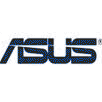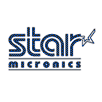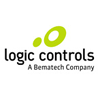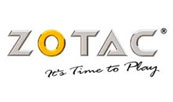 |
|
|
|
||
|
|
|
|
|
|
One problem all restaurants face is a dearth of information. If you are a big GB brain memory, you could remember over 3,000 person's information include your friends, family members, and all of others, but no more. That's where a modern POS system, replacing a cash register or other primitive device, can make such a difference.
Benefits
POS solutions give you the ability to monitor and control almost every function of your restaurant business, in-house or remotely. You are able to access better data on your business faster, and that may free up other areas of business like inventory control and marketing. For example, if you understand your inventory in real-time you will be able to push the sales of item nearing expiration.
Increase overall expetation
Point of Sale (POS) system would increase restaurant’s productivity and overall expetations. POS system has become a mainstream method for running restaurants and bars, or in retail stores.
Share customer information between all employees
That cash register may make a satisfying clink each time it opens, but you'll get more satisfaction -- and business value -- out of a modern point-of-sale (POS) system.
A well designed point-of-sale (POS) system will not only record all of transactions, and also records all of customers information. When the regular customers get returned, their information, such as eating habits, will be retrieved, and shared between all of your employees.
Simplifies communications: Kitchen & Wait staff
One major benefit of a POS system is that it simplifies communications between the kitchen and the wait staff. Orders go through the computer, directly to the kitchen printer. No more hand-writting errors, or repeat-yelling if noise of cooking sounds.
Track sales & inventory
Another benefit of a restaurant POS programs is that it can track everything from food usage, to the most popular menu items. Because the POS system acts as a time clock, it can also help prepare payroll. This can save you a lot of money in your bookkeeping department. Along with the daily operations of running a restaurant, a POS system can organize profit and loss statement and sales tax.
Saving Money
While full-featured point of sale software system may cost a bit up front, it will pay for itself repeatedly with the increased functionality. For example, a detailed sales report gives you a view of your business (including which items are selling and which are not)-allowing you to make more informed decisions on managing and controlling the menus. Remember, your pos software for restaurants should go with your business; not your business with POS Software.
Making More Money
In the business software used in your restaurant, every transaction is time-stamped, allowing you to identify your peak selling hours and scheduling your staff accordingly. The point of sale equipment can help you to identify menus that frequently sell in combinations with others (for example, a certain beverage with a particular sandwich); this in return helps you to optimize your inventory and other resources.
Stopped employee's theft

Employee theft will cost approximately 4% of your annual sales according to the National Restaurant Association. This can mean a signifigant loss to your bottom line, but worse than that it can mean a loss in the happy atmosphere you always envisioned for your restaurant. Through new technology such as POS systems, measured pour spouts, video survaliance systems and key pads, you should be able to catch employee theft and with enough proof, quietly releave perpetrators of their duties.
For full service restaurants, POS systems touch screen displays that make managing your wait staff assignments as simple as a few touches. Managers are able to operate multiple restaurants directly or remotely with real time reporting. Giving you the ability to modify pricing, monitor inventory, keep track of employee time and attendance, and marketing initiatives from a web hosted software.
On top of this your staff will be more efficient, especially in full service restaurants because POS systems can be programmed to provide step by step order entry guidance to ensure everything is included and processed in a customer order.
What to Look For: Take-Out restaurant
Order and go restaurants, like deli’s, coffee shops, bakeries, or any other restaurant without a wait staff want a solution that speeds up transactions. If you own a quick service restaurant you may be able to improve customer experience by speeding transactions up to 44%, according to an IBM study. The main purpose of these systems is to reduce order errors and reduce wait times. Basic Features to look for are:
- Large buttons with instant checkout capabilities
- Inventory information
- Credit card processing and cash register capabilities
What to Look For: Dine-In Restaurants
require a more integrated solution. These systems typically must include features for :
- Specific chain and fire kitchen commands
- Customer data tracking
- Check splitting
- Time and attendance systems
- Managerial reporting data and information systems









